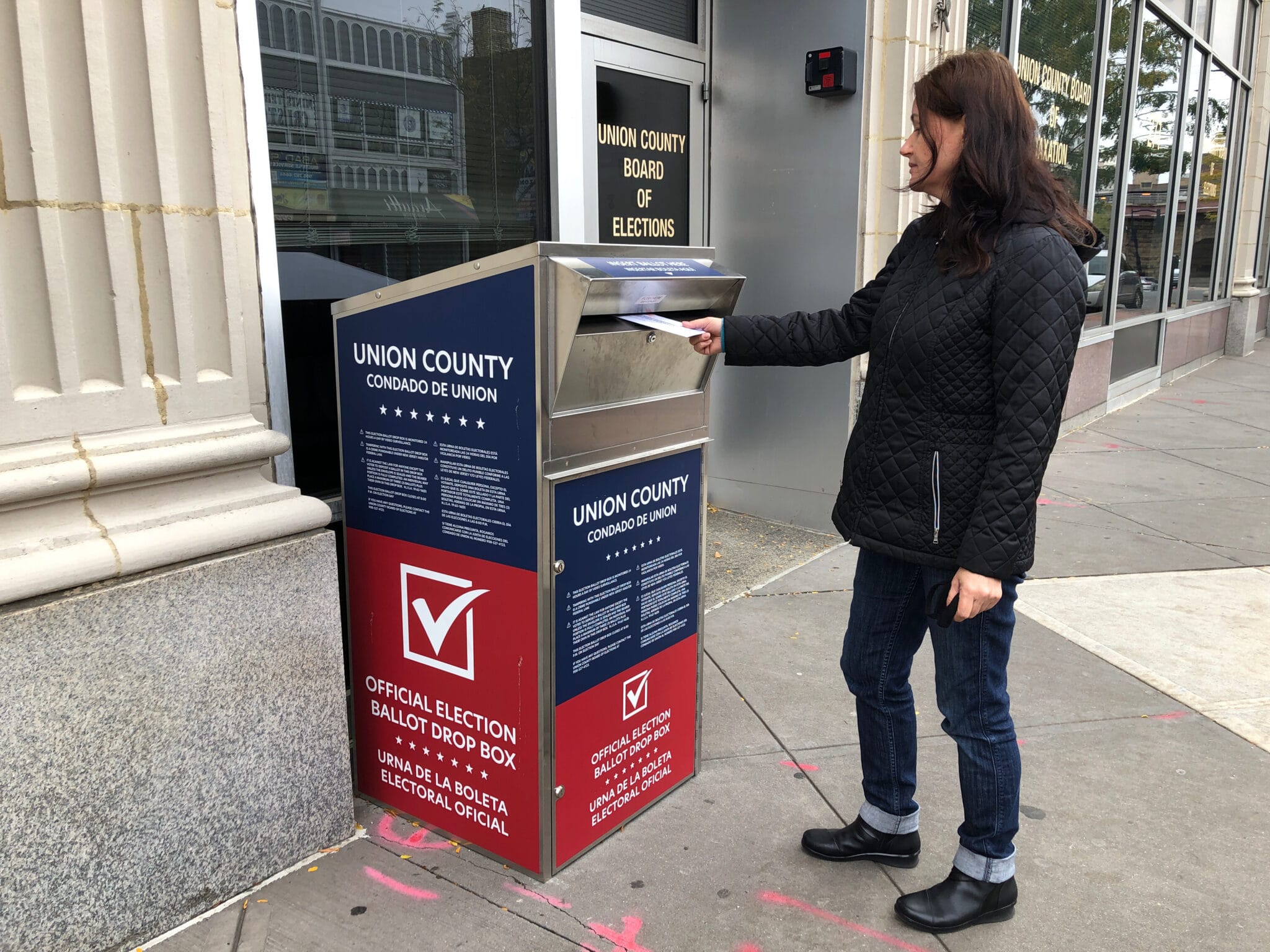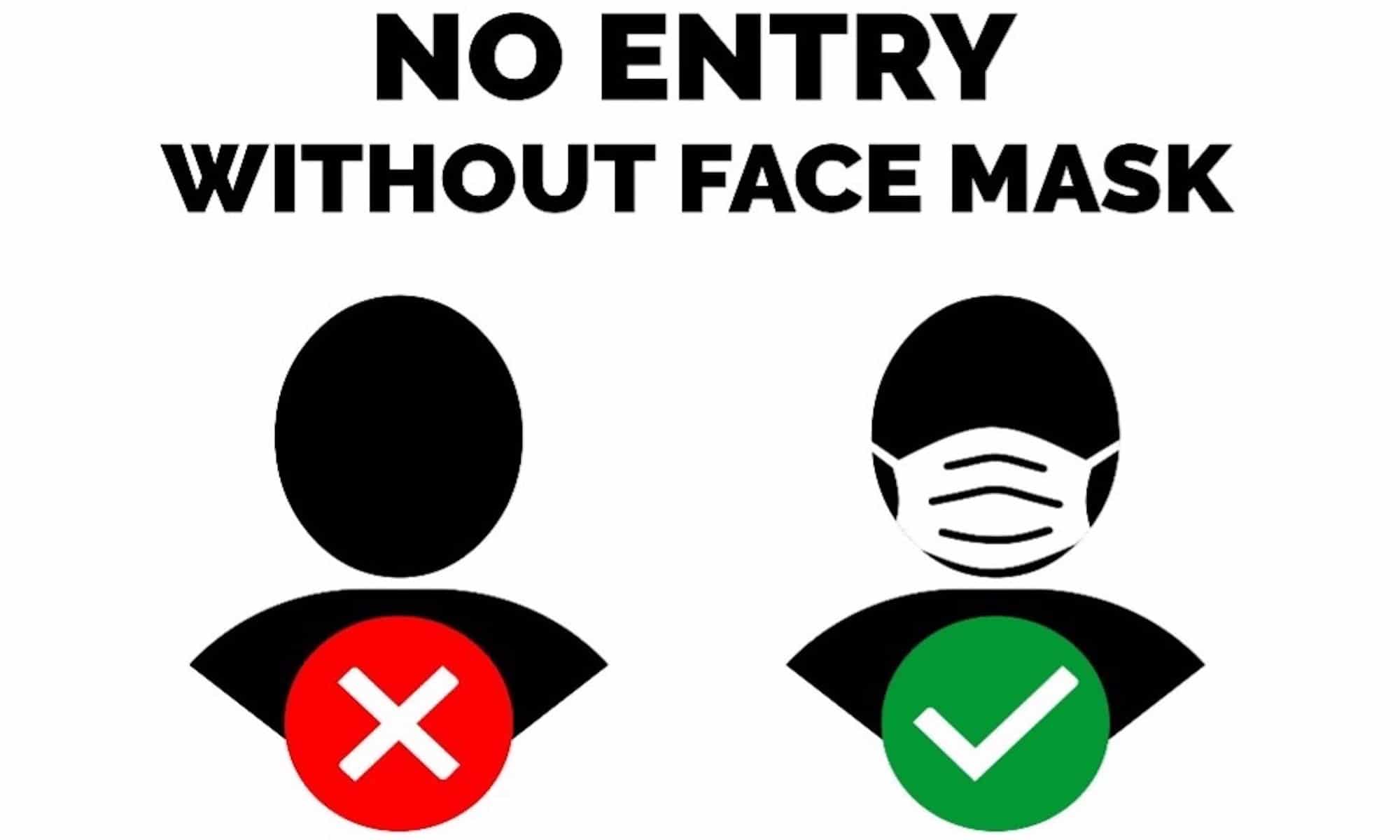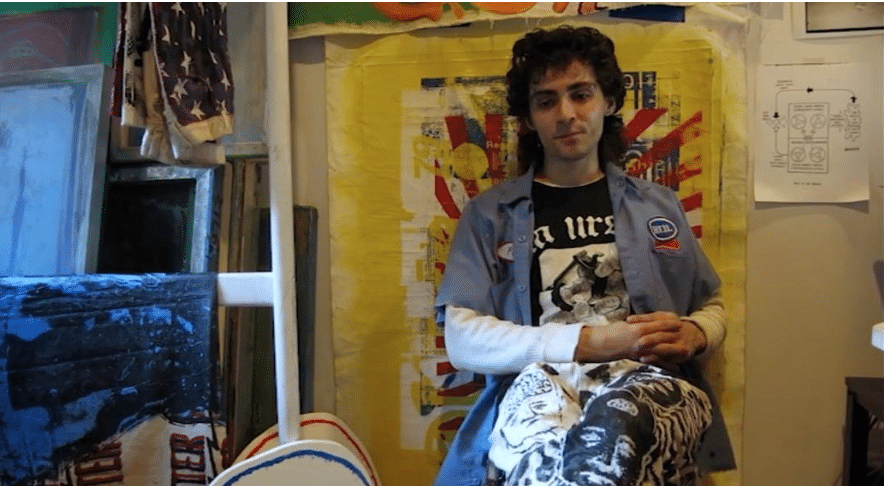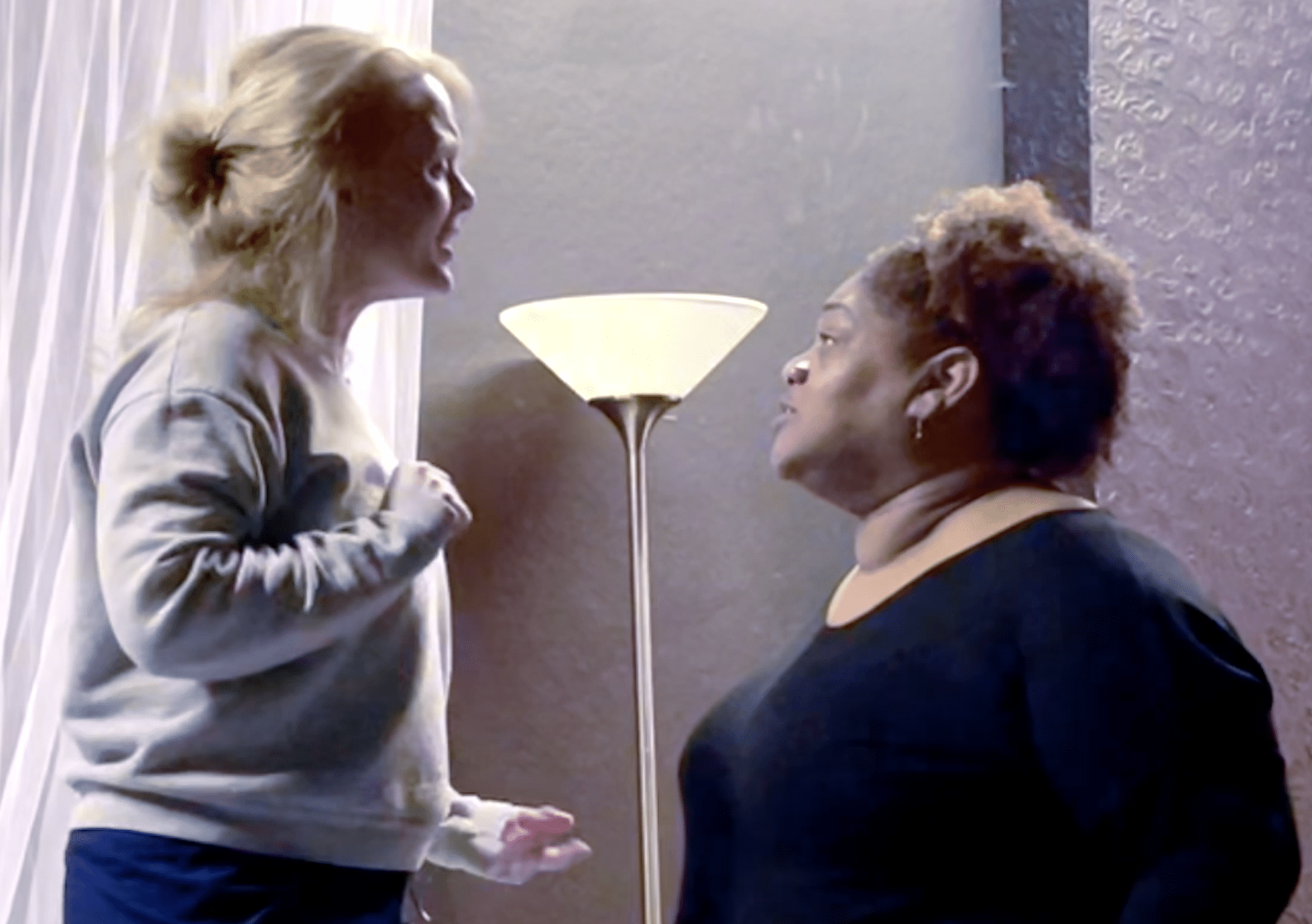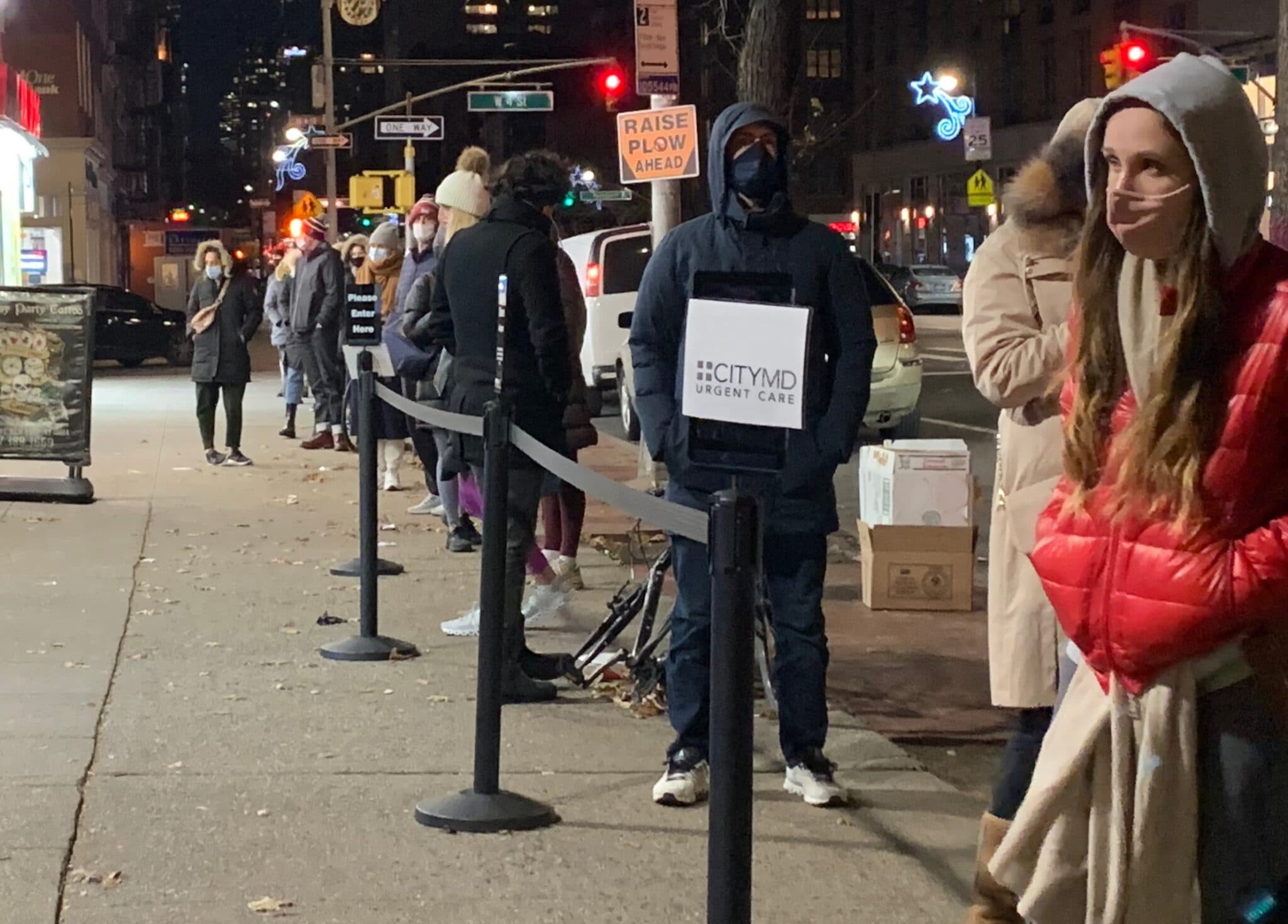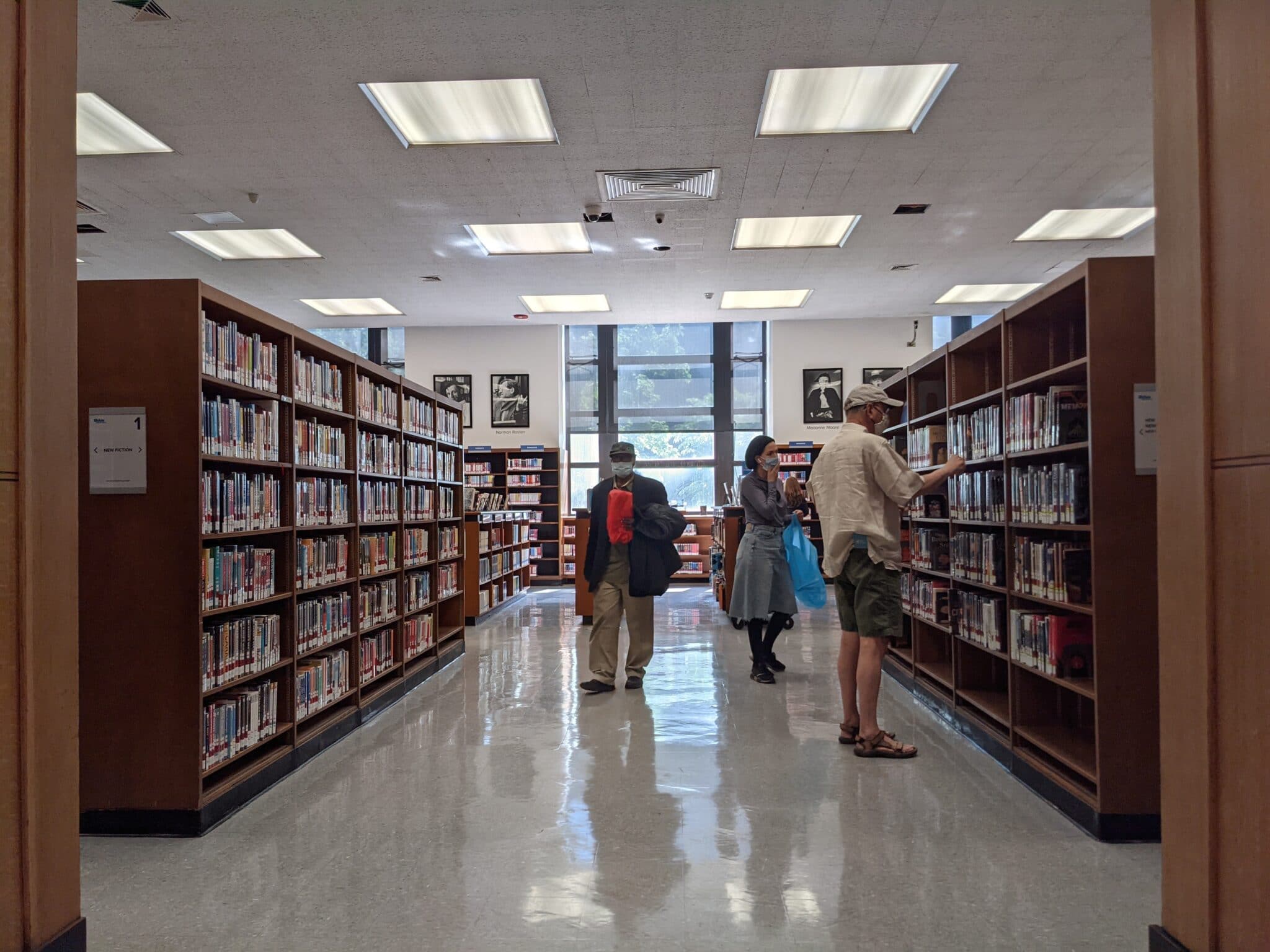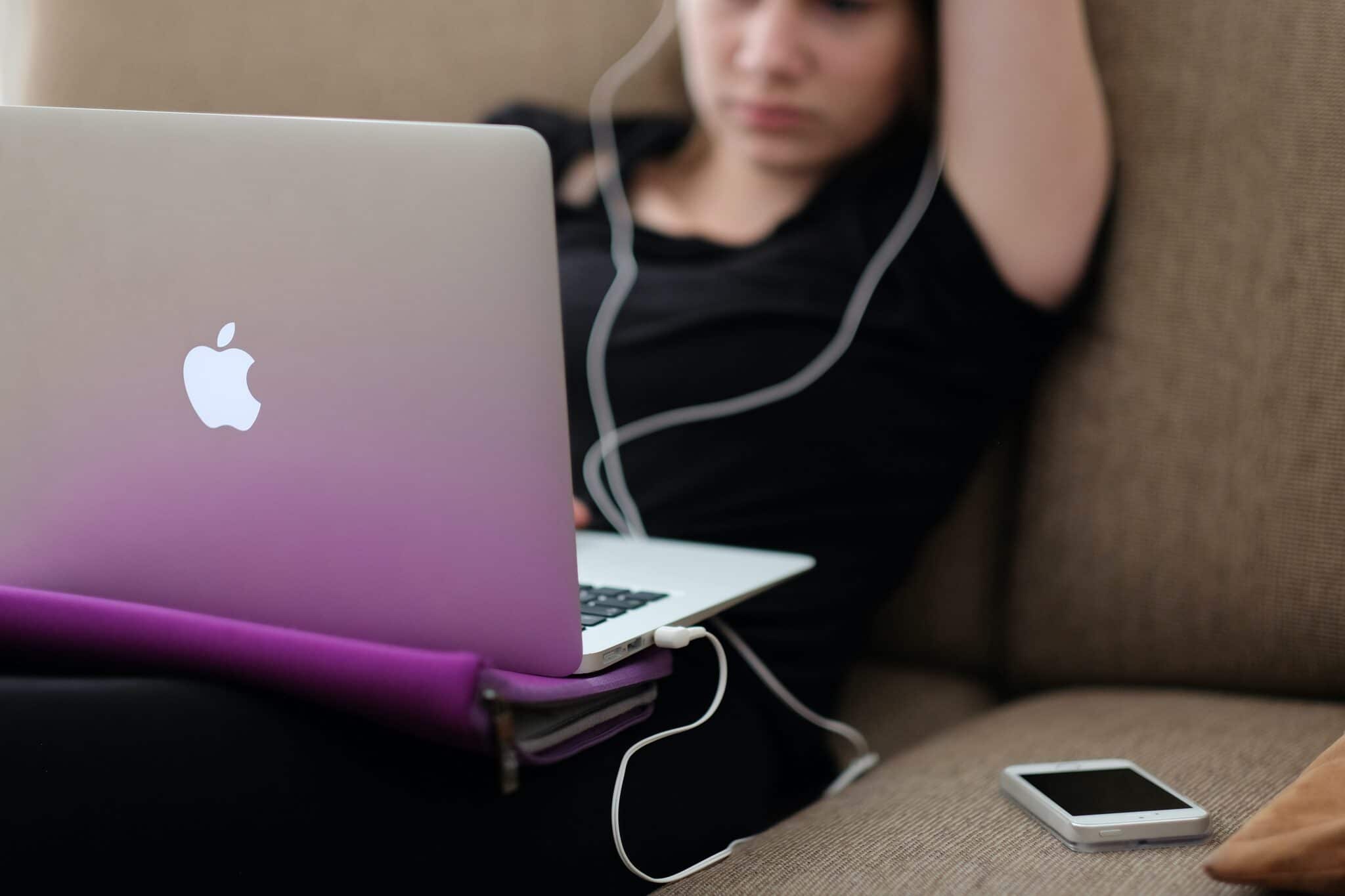Ivanna Zakharova drops off her mail-in ballot at a secure dropbox in Union County, NJ.
First-Time Voters Use Their Voice
by Ana Maria Olinyk
New York City native Gaby Gilbride was too young to vote in the 2016 election, so she was excited to make her voice heard in this election. “I’m incredibly proud to be a first-time voter,” she said. Gaby sees her right to vote in the presidential election as an important act of participating in our nation’s democracy: “I want to exercise the right that so many throughout history have fought for.”
The coronavirus pandemic caused New York election officials to make voting safer. They set up a vote-by-mail system and days for early voting before election day. Gaby decided to vote in person on the big day. “As a first-time voter, I wanted the experience of voting in person … [and] looked forward to casting my ballot at the polls.” Despite long lines across New York City, the in-person voting experience at her polling place in Bay Ridge, Brooklyn turned out to be “quick and easy,” she said. “The whole process took less than ten minutes.”
Unlike New York, New Jersey mailed every registered voter a mail-in ballot. In-person voting took place only on election day. Ivanna Zakharova, an American citizen since 2017, recently moved to New Jersey. She cast her vote by dropping off her mail-in ballot at a secure drop box before election day. Ivanna had voted in NYC in the 2019 election, but this November she voted for President for the first time. “I don’t necessarily think my vote will make a world of a difference,” she explained. The majority of New Jersey votes Democrat, both historically and in this election. That’s why she didn’t think her vote would affect the polls much. “But I vote to make my voice heard,” she said. “I vote to show that this view exists, and it will not be suppressed by fear.”
First Time Voters Pick Biden
by Mohammed Navil
“This isn’t my first time voting, but this is my first time voting in a presidential election,” said Abdelrahman Ghoneim, an Egyptian-American voter from Queens. He said that he voted for Democratic candidate Joe Biden “because he was endorsed by Barack Obama, who I saw as a good president.”
The 2020 presidential election had the highest voter turnout in 120 years. Over 160 million Americans voted this year, a rate of 66.9 percent. Many young people voted in a presidential race for the first time for many reasons, from having just reached voting age to caring especially about who becomes our President for the next four years. Some of these young voters are also first-generation Americans, with their cultural backgrounds heavily influencing their decision-making. Those we interviewed said they felt disappointed with Trump and saw a Biden presidency as a change for the better.
Abdelrahman’s sister, Nuhran Ghoneim, is a first-generation American who was at the polling place in Queens with him. She voted in county elections and the primary last spring. But like her brother, this was her first vote in a presidential election. She also voted for Biden. She said, “He wasn’t my first choice, but he was the next best option. Not only do most of his goals line up with what I agree with, but he has good morals and ethics that I stand by.”
Tasnim Hasnat, a first-generation Bengali-American, lives in Queens. She had voted before, but this was her first presidential election. Tasnim voted for Biden and had strong reasons why. “Frankly, I voted for Biden,” she said. “Trump does not deserve a second term considering how much division he created in America. Also, Trump does not care for human rights and is selfish to try and use the government for his benefits rather than the people. Biden does put the people first and is a better candidate.”
Young Voters Speak Out
By Samantha Alvarez
Isaiah Black, 22, a first-time voter, dropped off his absentee ballot at the Barclays Center in Brooklyn. “I’ve had enough of [Trump], who is an embarrassment to America. He could have made a good impact on our lives during and before COVID-19 entered the U.S., but he didn’t,” he said. Black and other young voters came out to vote to try to change the direction of the country.
“As a Black man, it feels amazing that I can use my voice and vote, while being among other young people working to dismantle systemic racism,” he said. Trump’s four years in the presidency motivated many young and new voters this year.
In another part of Brooklyn, Anthony Caul, 22, waited in line patiently at St. John’s Recreational Center. He had voted before but said this year he voted because he cares about issues like immigration, abortion rights, the economy and racism. “Voting makes a difference. But subterfuge tactics such as voter suppression make voting seem futile. However, some changes that seemed impossible and some candidates that campaigned for justice made their way to approval. So, with that sliver of chance, it’s worth it to try and vote for a more beneficial system,” Caul said.
Jennely Pichardo, 19, a City College student and first-time voter, was at P.S. 53 in Brooklyn with her mother. Pichardo has been going to polling centers with her mother since she was seven. She would translate the ballot and give her opinion about which candidates were good choices. The difference this year was that she had the opportunity to make her own choices, on her own ballot. “First-time voters this year are part of the young generation who are fighting for change and are not complacent. We’re not afraid to protest, and we are educating ourselves more than ever,” she said. Her mother did not want to vote this year because she couldn’t decide on a candidate. But Pichardo encouraged her to vote by stressing the importance and difference one single vote can make.
Pichardo said, “This year was much harder. Not only because I don’t like any of the candidates, but also because my mother is DEEPLY religious (I mean this with all the possible emphasis you can imagine), and so she was not going to vote at all because she did not want to vote for Biden. She said she couldn’t vote for a ‘pro-abortionist.’ She was so against abortion that she even suggested the possibility of voting for Trump, solely because he was pro-life. This was a huge argument for us for months, since Biden and Trump have been running. The night before election day, I broke down to her. I felt my rights as a woman of color and member of the LGBTQIA+ were very up in the air and in danger and I told her so. My mother agreed to vote for Biden, after this discussion.”
Pichardo thinks policy is more important than the personality of a candidate. “I think it’s a slippery slope to begin to support a person, rather than the policies [Americans] need them to pass. It’s easy to trust that the President-elect will do everything they say they’ll do. But there needs to be a constant pressure on them and their team to deliver on the promises they made to the American people while they were running for office,” she said.
At 39, Harry Santiago just misses the age range of being a millennial. He initially requested his absentee ballot to mail his vote. But he was uncertain about the way the U.S. Postal Service might handle absentee ballots, so he decided to drop it off at a P.S. 108 in The Bronx. Santiago has been a registered voter for 21 years and said this year is one of the most important elections in his lifetime. “I was not happy with the 2016 result. We need a huge turn around to get this country back together,” he said. He said that he thinks it is also important to vote during non-presidential races.
“They work for us. We need to make sure that they do their jobs, and to do that, we need to vote the right ones in!” he said.
Gen Z and Millennial voters will become the largest voting bloc in the next few years, according to The Atlantic. “My message to future voters and those who will unfortunately not be able to vote is to keep on top of these politicians and look at their actions, not their words. It is also important to encourage others to vote, and help them register, even if you can’t vote now,” Santiago said.
Pichardo encouraged young people to start thinking about voting before they do. “Don’t wait until the year you’ll be able to vote to educate yourself on the system,” she said. “It’s important for us to be educated on its faults and strengths, so we know how to maneuver around it the best way possible, eventually reconstructing it. It’s a long road to the end result, but we’ll get there.”
Tags: City College Journalism Election 2020 First Generation American First Time Voters New York City NYC
Series: Election 2020
